17 November 2022
On 17 November, the European Union Rule of Law Mission in Kosovo (EULEX) and the Kosovo Correctional Service (KCS) presented, at Kino Armata in Pristina, the short film “The Change”: a powerful reminder of the importance of the rehabilitation and reintegration process of juveniles in conflict with the law.
Produced by EULEX in cooperation with KCS, “The Change” is inspired by the real-life experience of a former juvenile in conflict with the law, who successfully rehabilitated and reintegrated into the society thanks to the professional support given by qualified KCS staff of the Juvenile Correctional Center in Lipjan/Lipljan.
Opening the event, the Minister of Justice, Albulena Haxhiu, thanked all counterparts who support the work of institutions in the field of juvenile justice and reaffirmed the need to continue investing in rehabilitation and reintegration programmes for juveniles.
"Quality education from an early age, cultural activities, integration and socialization with others, economic well-being and equality with other children, are necessary conditions for every person, so that the child has the right growth and development in every direction", the Minister stated, adding how: "The minors’ mistakes, which have brought them to the Correctional Centres, can be corrected and we need a serious and appropriate commitment to return them, integrated, into the society, without limiting their dreams and ambitions in their life, profession and contribution they will make to their society and country".

The Head of Mission of EULEX Kosovo, Lars-Gunnar Wigemark, recalled the common obligation to fight the social stigma attached to having spent time in a correctional facility, which, often, juveniles attempting to re-integrate into the society have to face.
Wigemark also explained how the need to have a separate justice system for juveniles is based on the universally recognized fact that children differ from adults in their physical and psychological development, and these differences make them less culpable when they come into conflict with the law.
“As you all know, juveniles who commit criminal offenses, are, many times, themselves victims of the environment where they live. Their behavior is often the consequence of the difficulties they encounter and are unable to cope with. For this reason, juveniles need special attention and protection, and, perhaps most importantly, qualified, dedicated, and caring support throughout their whole rehabilitation journey,” Wigemark said.
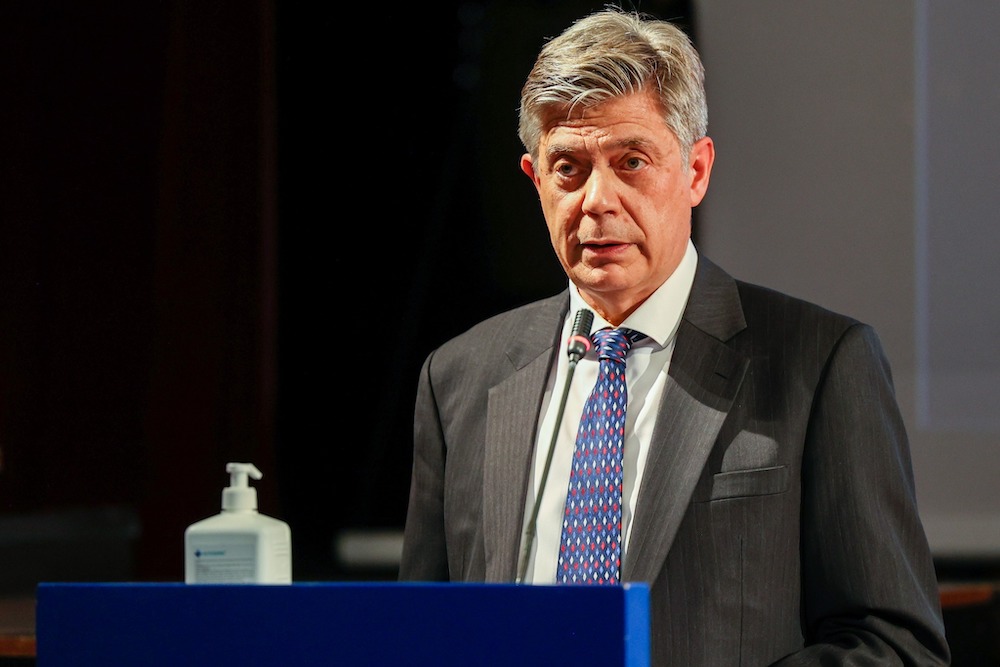
A specific feature of the juvenile justice system, based on the Kosovo’s Juvenile Justice Code, are the so-called ‘diversion measures’, which, when properly applied, can prevent, whenever possible, the commencement of court proceedings against a juvenile offender.
The Head of EULEX pointed out that the Mission, over the past year, has been assessing the application of these measures: “The data obtained from the Basic Prosecution Offices and from the Kosovo Probation Service, considering the use of these ‘diversion measures’, is not very encouraging: it actually shows that between 2019 and 2021 there was a decrease in the number of diversion measures applied,” Wigemark said.
The Kosovo Correctional Service Officer, Magbule Rexhepi, explained how the idea of the film took shape, adding that the project, implemented with the Group “SHPREHU SHLIRË”, winner of the UNICEF’s “PODIUM” project”, aimed at making youth aware of the consequences caused by the use of narcotics and at shedding a light on the process of juveniles’ rehabilitation.
"I hope that this film contributes to preventing young people's involvement in the use of narcotic substances", Rexhepi pointed out, adding: "Prison is not the ideal place to change people, but if this happens then the reintegration of minors must be done”.
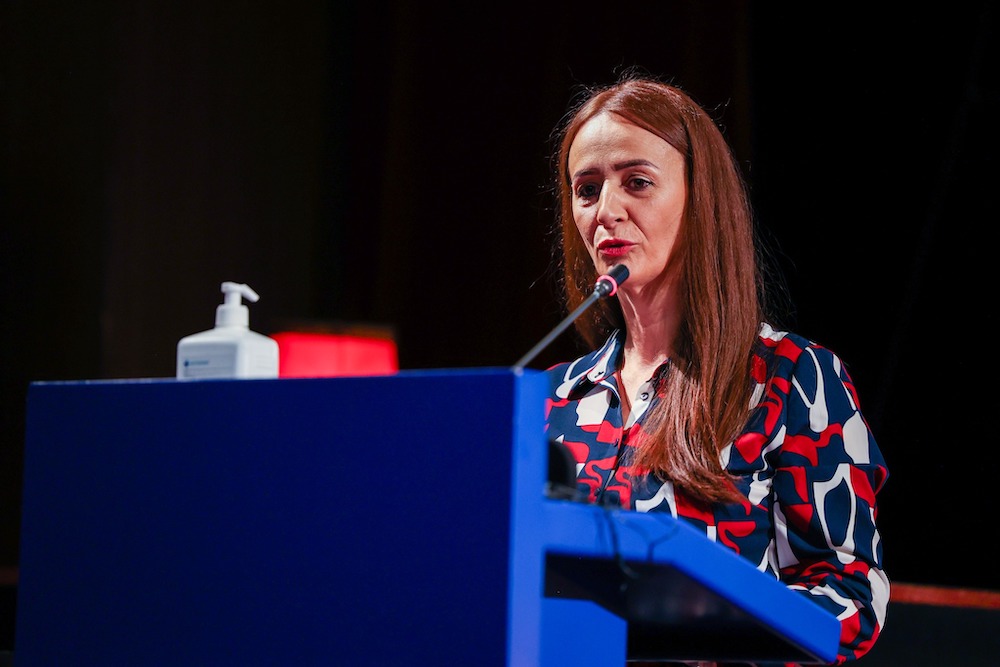
After the movie’s screening, the KCS Replacing General Director, Sami Gashi, the Director of the Juvenile Correctional Center in in Lipjan/Lipljan, Ali Gashi, the Chief of EULEX’s Correctional Unit, Ritva Vahakoski, and the UNICEF Protection Officer, Afrim Ibrahimi, discussed about the current status and the main challenges of the juvenile justice system in Kosovo.
The KCS Replacing General Director, Sami Gashi, highlighted how taking proper care for young people who have come into conflict with the law is one of the most sensitive and important responsibilities the Correctional Service has been entrusted with.
“Young people are the backbone of a country’s future; thus, future achievements of the society are in their hands. Therefore, it is our responsibility to take care of them at every stage of their lives, as the society’s future is determined by their well-being,” Gashi stated.
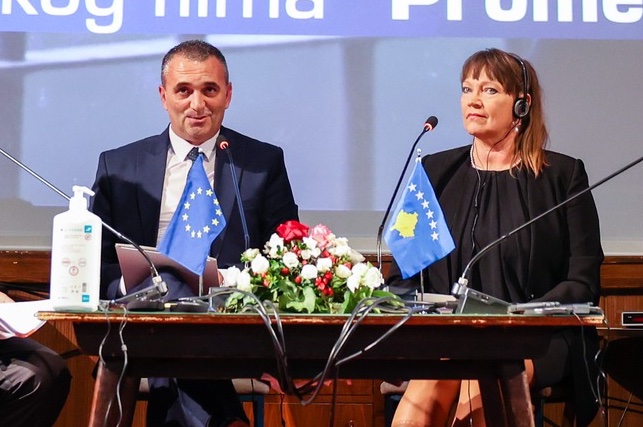
The Director of the Juvenile Correctional Center in in Lipjan/Lipljan, Ali Gashi, recalled the important work done by the KCS staff in keeping juveniles safe and secure, while at the same time enabling their rehabilitation and reintegration process.
In particular, Gashi pointed out the essential role played by education in both preventing criminal behaviors and supporting the reintegration of juveniles: "We have a close cooperation with the Ministry of Education, Science, Technology and Innovations, and with the Municipal Court, and together with them we provide primary and secondary education, whilst, based on the legislation each of the institutions have separate duties and responsibilities. Within the Correctional Service of Kosovo, we have two schools where the educational process takes place", the Director of the Juvenile Correctional Center stated, adding that: "We will work together with the support of the Ministry of Education, Science, and Technology for all minors who are granted the privilege to access education in public schools, because we think that their inclusion in public schools can contribute to their 100% rehabilitation and re-socialization".
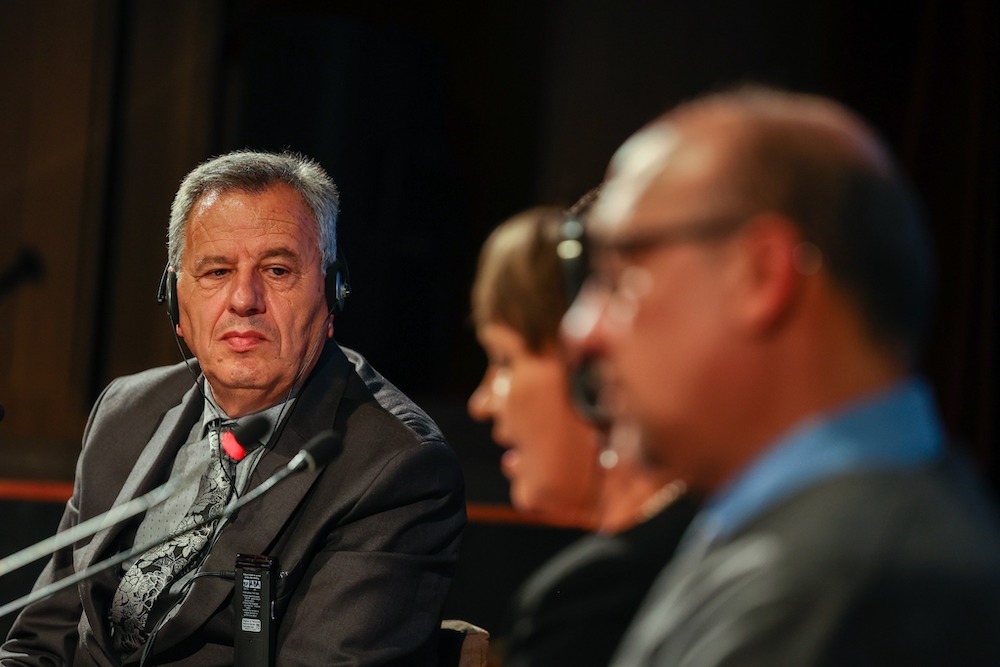
The Chief of EULEX’s Correctional Unit, Ritva Vahakoski, highlighted the continuous support given by EULEX to the KCS’s staff, including at the Juveniles Correctional Center and at the Educational Correctional Center in in Lipjan/Lipljan, with a focus on addressing the perceived causes of delinquency based on individual risk and needs assessment.
Vahakoski also stressed the need to invest in educational programs, which provide youth offenders with a feeling of hope, and vocational training: “Efforts to promote desistance from crime are not the sole responsibility of one institute. Ongoing collaboration between the criminal justice system and community resources, including police, prosecution, corrections, probation, and community organization, is needed.”
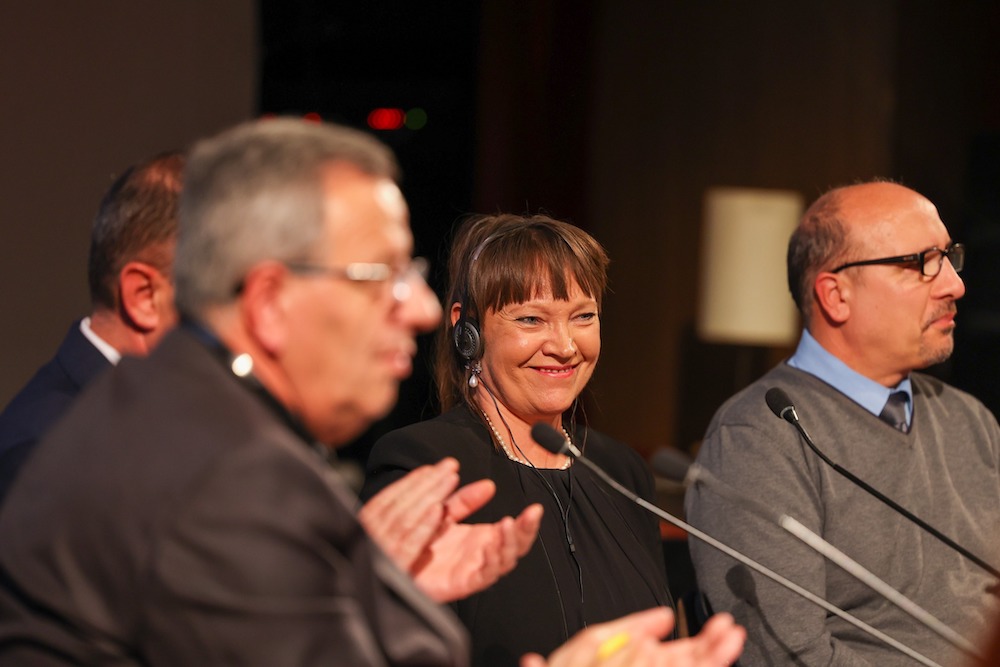
The UNICEF Protection Officer, Afrim Ibrahimi, presented the work of UNICEF in the area of juvenile justice: "In Lipjan, at the Correctional Educational Center, we have also established various workshops with the joint support of UNICEF and the European Union Office", explaining how this is done "to strengthen juveniles’ life skills, but also their craft and vocational skills, in order to rehabilitate and prevent the recidivism process, that often occurs among minors who are in conflict with the law".
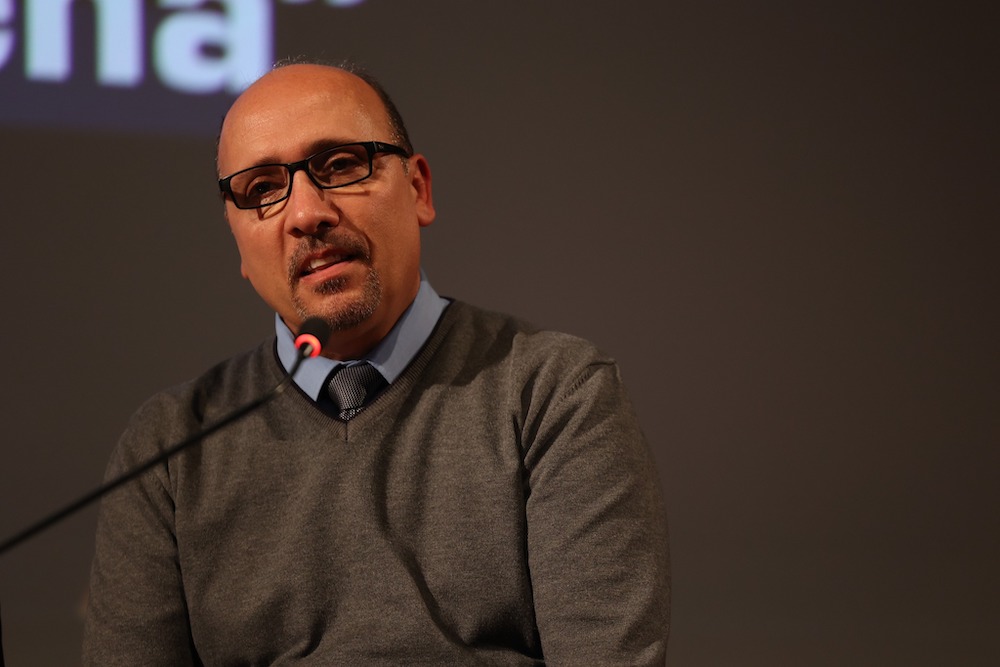
Since its inception in 2008, the EULEX’s Correctional Unit has been a steadfast partner of KCS.
Today, the EULEX CU supports KCS’s efforts to develop a professional senior management team and to provide rehabilitation of prisoners in a safe and secure environment through monitoring, mentoring and advising. This is achieved thanks to a regular and mobile presence by the EULEX correctional experts in all 11 correctional facilities in Kosovo and through numerous meetings with KSC staff. Since 2021, EULEX is also supporting the Kosovo Probation Service (KPS).
Watch the full movie: https://www.eulex-kosovo.eu/?page=2,11,2682,01
Watch the full discussion: https://www.facebook.com/EULEX.KOSOVO/videos/859814282133973
Full Speech of the Head of Mission of EULEX Kosovo
Dear Minister of Justice,
Dear Acting Deputy Director of the Kosovo Correctional Service,
Dear Ambassadors,
Dear Colleagues, Ladies and gentlemen,
Thank you for coming here this afternoon.
Today is a special day for us at EULEX, and also for our colleagues at the Kosovo Correctional Service, with the first screening of the short film entitled “The Change”. This is the first time it is been shown in public.
The film has been produced in cooperation between EULEX and the Kosovo Correctional Service, which is one of our main counterparts here in Kosovo, and it is inspired by a real-life experience of a former juvenile in conflict with the law, who then successfully was rehabilitated and reintegrated into Kosovo’s society.
„The Change“ is only 11 minutes long, but I think its powerful message will not leave you indifferent.
As you all know, juveniles who commit criminal offenses, are, many times, themselves victims of the environment where they live. Their behavior is often the consequence of the difficulties they encounter and are unable to cope with. This is not only true in Kosovo, but it is true in all our societies.
For this reason, juveniles need special attention and protection, and, perhaps most importantly, qualified, dedicated, and caring support throughout their whole rehabilitation journey.
We are talking about people who are still defined as children, legally.
So, the UN Convention on the Rights of Child, which is part of Kosovo’s legal framework, recognizes the need for a separate justice system for juveniles. They cannot be treated like any other adult offender.
This is based on a universally recognized fact that children differ from adults in their physical and psychological development, and these differences make them less culpable when they come into conflict with the law.
If the ultimate goal of any sentence is the successful rehabilitation of the offender, this is even more important when it comes to juveniles: because they have their all life in front of them.
Prisons are no place for minors and the juvenile justice system should aim at the wellbeing of all children, focusing on keeping them safe and, again, on their reintegration into the society where they belong.
Often however, juveniles attempting to re-integrate into the society struggle with finding employment or even with being admitted to educational institutions, due to the stigma attached to having spent time in a correctional facility.
This happens even if they have concluded their rehabilitation process, and have - acquired specific job skills, or even advanced in their academic studies.
This phenomenon again is not unique to Kosovo it is symptomatic of a belief that if someone has committed a criminal offence, he or she cannot be rehabilitated.
A major part of EULEX correctional unit’s work, together with The Kosovo Correctional Unit, is focused on supporting the dedicated and committed staff of the Kosovo correctional system in challenging and proving that this assumption that, once you have committed a crime, you are always considered to be a criminal, is wrong.
Fighting this stigma is a shared responsibility of all of society: in particular, the education system, but also the private sector, civil society as well as international organizations, who I represent, who also have a role to play.
The short movie we are going to see today and the inspiring story that it tells, will hopefully contribute to fight also the stigma of juvenile crime and show that if they receive the right support, juveniles can and will change their lives.
Before finishing, let me also take this opportunity to say a few words about the findings that will be included in our upcoming Justice Monitoring Report in respect to how to deal with juveniles in general.
Over the past year, we have been assessing the application of the so-called ‘diversion measures’, stipulated by the Juvenile Justice Code, which is a very good piece of legislation.
When properly applied, these measures can prevent, whenever possible, the commencement of court proceedings against a juvenile offender, assisting him or her in their rehabilitation and reintegration into the community, thus preventing recidivist behavior, that you once again commit crimes.
However, the data obtained from the Basic Prosecution Offices and from the Kosovo Probation Service, considering the use of these ‘diversion measures’, is not very encouraging. The data actually shows that between 2019 and 2021 there was a decrease in the number of diversion measures applied.
In particular, our monitoring highlighted the very limited use of a very important diversion measure, the so called ‘police warning’. We all hear about police warnings in these days, so you all know what I mean.
This has been in force since 2018 and the measure is meant to address petty criminal cases when the police and prosecution decide that further investigation is not needed and that a warning would suffice for a juvenile to understand the gravity of the criminal act, and to repent and refrain from similar behavior in the future.
Therefore, we, as a Mission, would like to call on prosecutors and the police to make maximum use of these ‘diversion measures’ as provided under Kosovo’s law, including the ‘police warning, as the proper application of diversion measures plays an essential role in protecting juveniles from facing the social stigma of incarceration, and maybe a better life in the future.
Thank you for your attention.